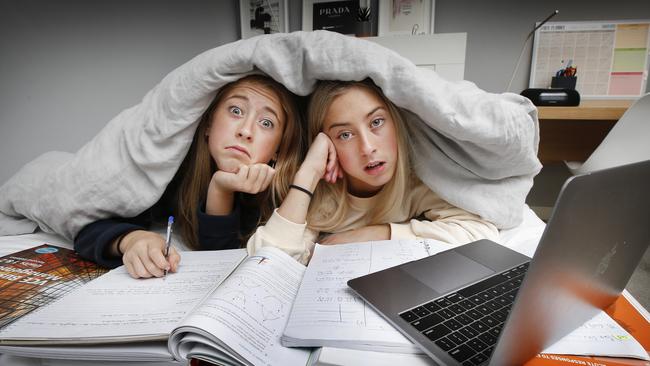Researchers find link between negative thinking and delayed sleep in teens
While teen sleep problems are often put down to late-night screen or social media use, researchers have discovered another issue that is affecting their poor sleep habits.

VIC News
Don't miss out on the headlines from VIC News. Followed categories will be added to My News.
A push for perfection and negative thoughts are keeping teenagers awake at night, raising their chance of becoming depressed or anxious, a new study shows.
A Flinders University study of almost 400 young people aged 14 to 20 found a new approach is needed to help teenagers get more regular sleep.
While teen sleep problems are often put down to late-night screen or social media use, Prof Michael Gradisar’s research, published in the Sleep Health journal, found there was a link between negative thinking and delayed sleep.
Teenagers who were more likely to have perfectionist tendencies were more at risk of disturbed sleep.
“Perfectionism may amplify the adverse effect of pre-sleep negative thoughts by making them more emotionally loaded,” said Prof Gradisar, child and Adolescent Sleep Clinic director. “Repetitive negative thinking is habit-forming and it can significantly contribute to making sleep difficult and causing depressed mood in teenagers, who already like to stay up late at night.

“This study supports the need to recognise repetitive negative thinking in preventing and treating sleep problems, along with individual differences in perfectionism and mood.”
International studies show depression affects 3-8 per cent of adolescents.
It is often recurring and may continue to develop into more severe depressive disorders during adulthood.
Teenage depression can cause poor concentration, loss of interest in schoolwork, difficulties in peer relationships, and even suicide.
Kew mother of three Rebecca Wansbrough said her older daughter Ally, 16, tended to go to sleep late and wake up late. “She often stays up doing homework,” she said. But younger daughter Greta, 14, has a more structured sleep routine.
Ms Wansbrough’s son has just finished year 12 and she said senior students faced considerable pressure to achieve.
“The first question is always: ‘What are you going to do?’ Back in our day it was a lot more relaxed,” she said.
“Year 11 students being encouraged to do year 12 subjects adds to this anxiety.”
RELATED:
THE APP HELPING PARENTS WITH KIDS IN ISOLATION

